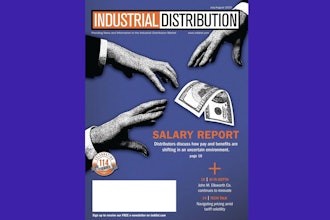When Rudolph Giuliani became the mayor of NYC, it was a mess. Crime levels were out of control and the city had a bad reputation. Giuliani knew it was his responsibility to turn this city around. While in office, Giuliani quickly noticed that there was little accountability. People were too busy pointing fingers.
So, Giuliani displayed a plaque on his desk that read, “I’m accountable.” He knew that he couldn’t expect other people to be accountable if he didn’t hold himself accountable.
How do you demonstrate accountability?
Accountability and sales go hand-in-hand. In sales, your results are a direct reflection of your effort. If your sales are down, go find more opportunities. If you lose a piece of business, find another one. In sales, it’s all on you.
Your success is dependent upon effort, not chance. Given the unpredictable nature of sales, we don’t always get the results we want. When we don’t see the results, we get frustrated or give up. At these moments of frustration, it’s our responsibility to get back up and try again.
Top-achieving salespeople are accountable for their performance. It’s been said that success has many parents and failure is an orphan. That might be true for some salespeople, but not top-achieving salespeople. Top-achieving salespeople own their successes along with their failures. They embrace failure because failure is the best teacher.
Holding yourself accountable means you have a positive sense of control. Here are some ideas to help you maintain a positive sense of control.
In Psychology, locus of control refers to your belief in how much control you have over your life. If you are internally focused, you believe much of what happens to you is a result of the actions you take and the decisions you make.
If you are externally focused, you believe much of what happens to you is a result of luck or fate. To be accountable, you need an internal locus of control.
On a piece of paper, create a list of ten things that will contribute to your success as a salesperson. After you create your list, circle all those items that you control. The more items you circle indicates an internal locus of control. The fewer items you circle indicates an external locus of control.
Externally focused individuals believe success is luck or fate. These individuals look out the window and blame their failures on external factors. Externally focused salespeople waste their time making excuses versus looking for ways to improve.
Top-achievers focus internally. They hold themselves accountable. These salespeople don’t look out the window to the world and credit their success or place blame for their failures. Top-achievers look in the mirror.
 Paul Reilly, President of Reilly Sales Training
Paul Reilly, President of Reilly Sales TrainingPaul Reilly is president of Reilly Sales Training, a St. Louis-based, privately owned company that specializes in training sales professionals, sales managers, and service professionals. Call Paul at 636-778-0175 or email [email protected].






















